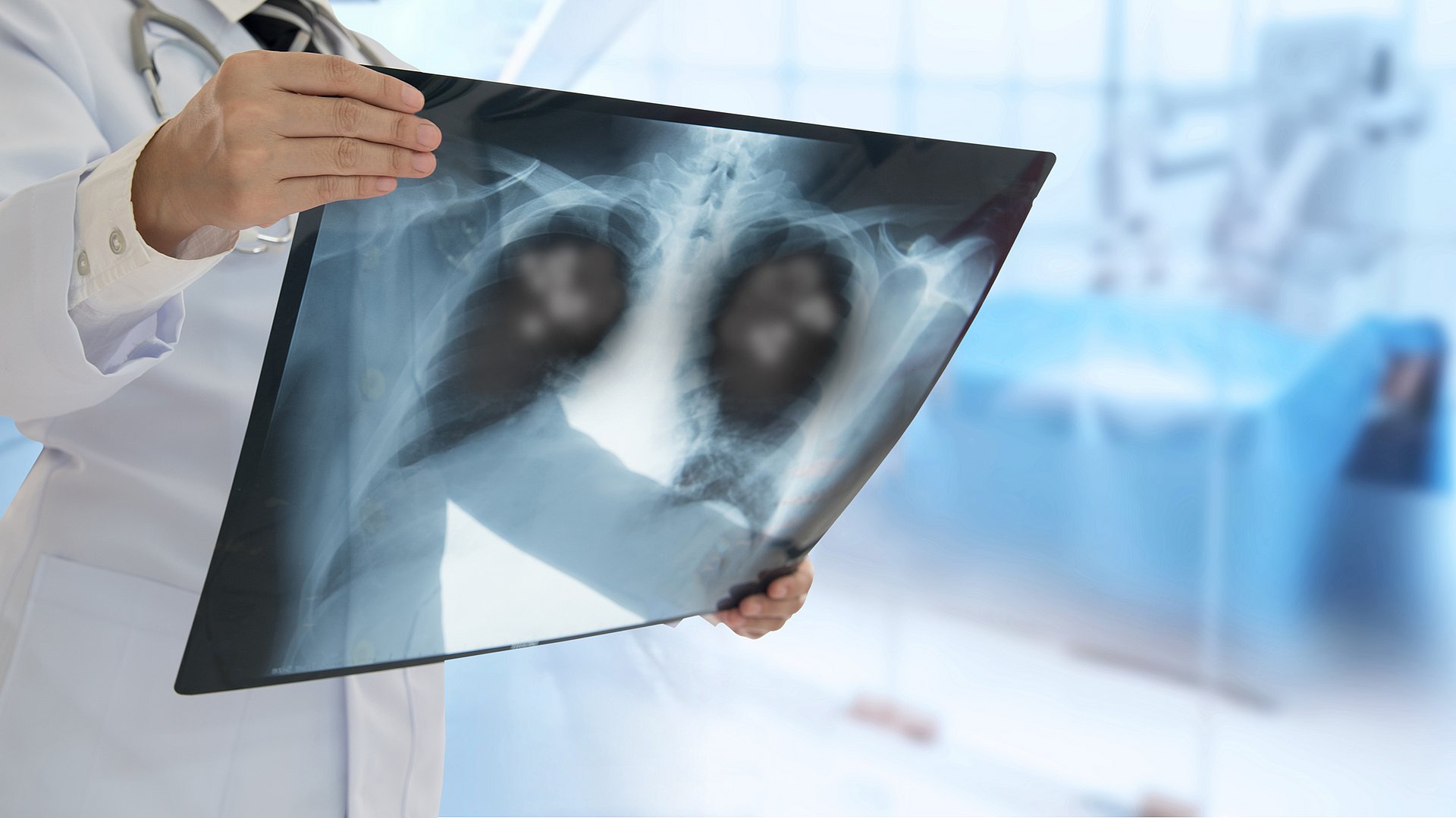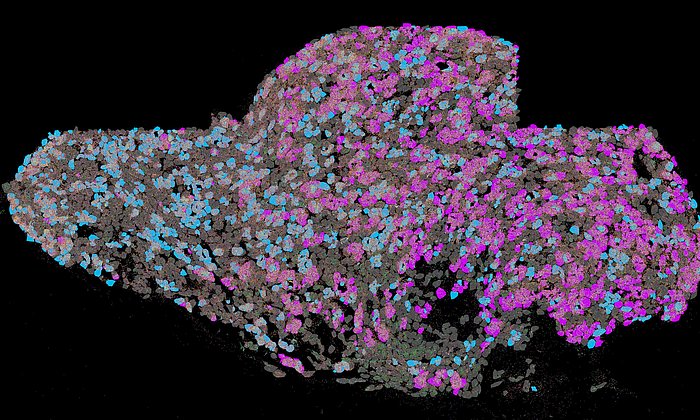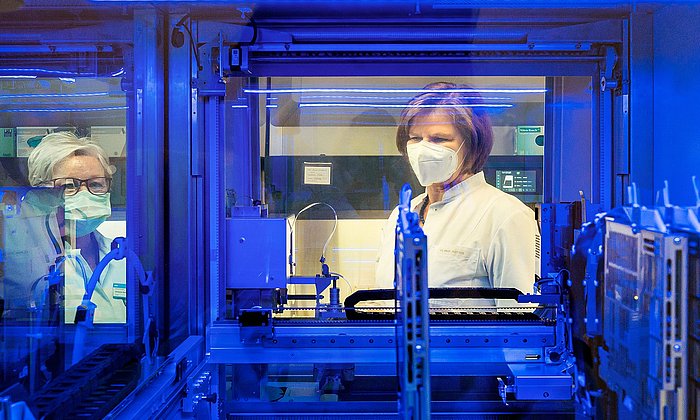Sugar molecule accurately delivers RNA drug to target cells
Inhalation drug prevents severe pneumonia

The team led by Stefan Engelhardt, Professor of Pharmacology and Toxicology, has developed an RNA-based active ingredient called RCS-21 to prevent severe lung inflammation and fibrosis, i.e. scarring of the lung tissue, for example in SARS-CoV2 infections.
In the cell, RCS-21 stops the activity of the molecule microRNA 21. This nucleic acid, which Engelhardt and his team have been researching for a long time, is one of the triggers for the excessive activity of macrophages in severe lung infections.
Drug docks onto sugar receptors
In the scientific journal "Nature Communications", the team now describes how the active substance RCS-21 is delivered to its target particularly effective via an inhaler. To do this, the researchers took advantage of a special feature of macrophages. These scavenger cells are also present in large numbers in the healthy lung. There, they perform the important task of destroying bacteria and fungal spores as quickly as possible. The macrophages identify their targets among other things based on complex sugar molecules on the surface of the invaders. "We have determined in single cell analyses that the corresponding sugar receptors are, on the one hand, among the most common receptors on macrophages," says Stefan Engelhardt. "On the other hand, the receptors are, in a sense, a unique feature of macrophages – they hardly occur anywhere else."
Therefore team coupled its active ingredient to a sugar molecule, or more precisely: to trimannose. This approach had so far only been pursued with chemically less complex active ingredients. Studies with mice produced clear results. "When the drug was administered as a spray, macrophages took up the active ingredient significantly better than without sugar molecules. In contrast, other cell types even outright exclude the molecules," says Christina Beck, first author of the article together with Deepak Ramanujam.
Active substance successfully tested
In experiments with mice, RCS-21 ensured that microRNA 21 was reduced by more than half compared to control animals. Fibrosis and inflammation were also significantly reduced after treatment. Increased microRNA-21 activity was also stopped by treatment with RCS-21 in samples of human lung tissue infected with the SARS-CoV-2 coronavirus in the laboratory.
Funded by Federal Ministry of Education and Research
Studies to prove the drug's safety are already underway, the first clinical trials in humans are targeted for 2024. Responsibility lies with RNATICS, a TUM spin-off. In 2021 the start-up received around 7 million euros in funding from the German Federal Ministry of Education and Research (BMBF) to support the development of the drug.
RNATICS co-founder Stefan Engelhardt sees great potential in the mannose technology: "We were able to show that nucleic acid-based active substances can be used in a very targeted manner, at least in the lungs. This technology opens up a wide field for the development of novel RNA-based drugs. I expect a lot to happen in this area in the next few years."
Beck, C., Ramanujam, D., Vaccarello, P., Widenmeyer, F. , Feuerherd, M., Cheng, C.-C., Bomhard, A., Abikeeva, T., Schädler, J., Sperhake, J.-P., Graw, M. , Safi, S., Hoffmann, H., Staab-Weijnitz, C. A., Rad, R., Protzer, U., Frischmuth, T. & Engelhardt, S. “Trimannose-coupled antimiR-21 for macrophage-targeted inhalation treatment of acute inflammatory lung damage”. Nature Commununications (2023). DOI: 10.1038/s41467-023-40185-1.
Technical University of Munich
Corporate Communications Center
- Paul Hellmich
- paul.hellmich@tum.de
- presse@tum.de
- Teamwebsite
Contacts to this article:
Prof. Dr. Dr. Stefan Engelhardt
Technical University of Munich (TUM)
Institute of Pharmacology and Toxicology
Tel: +49 89 4140-3260
office.pharma.med@tum.de



